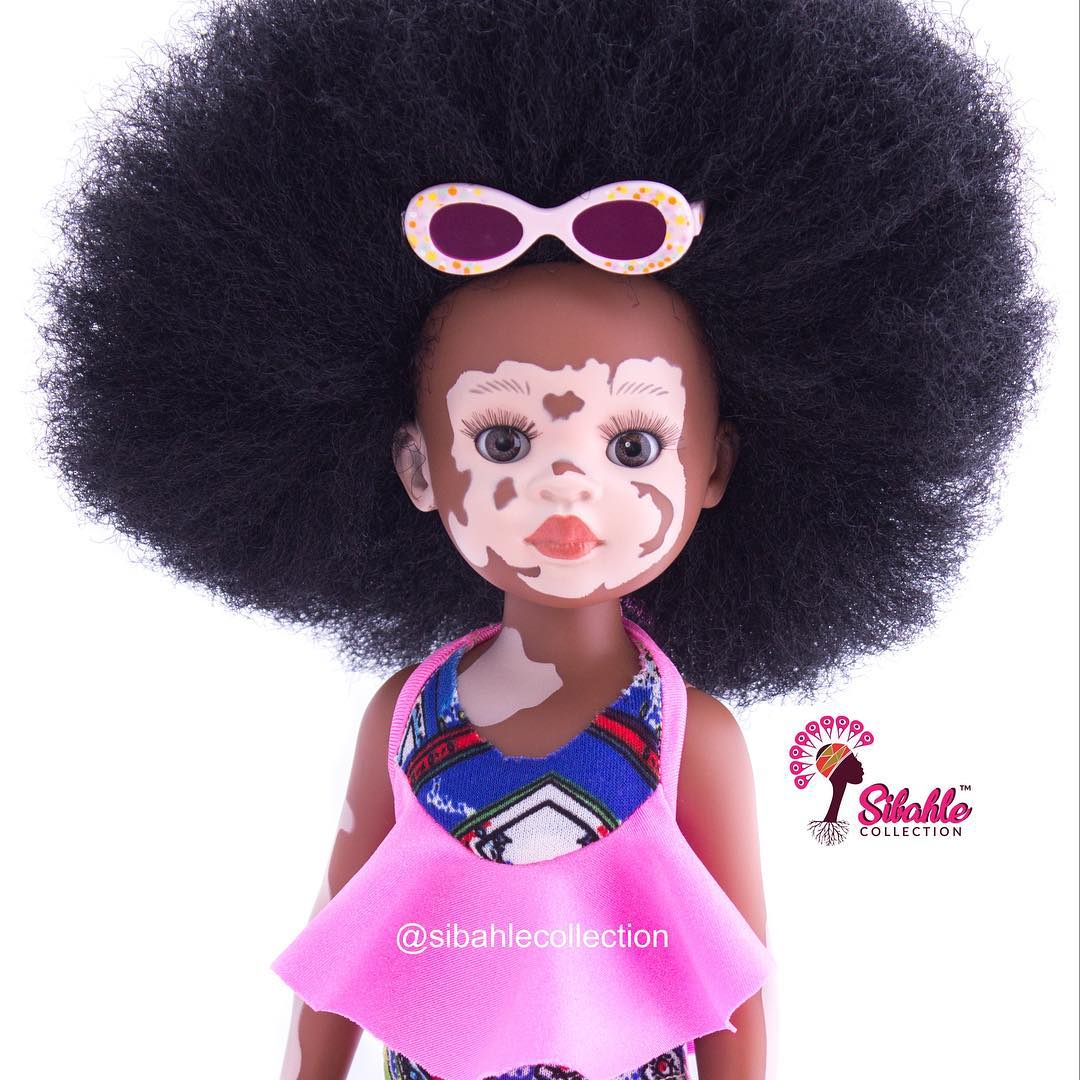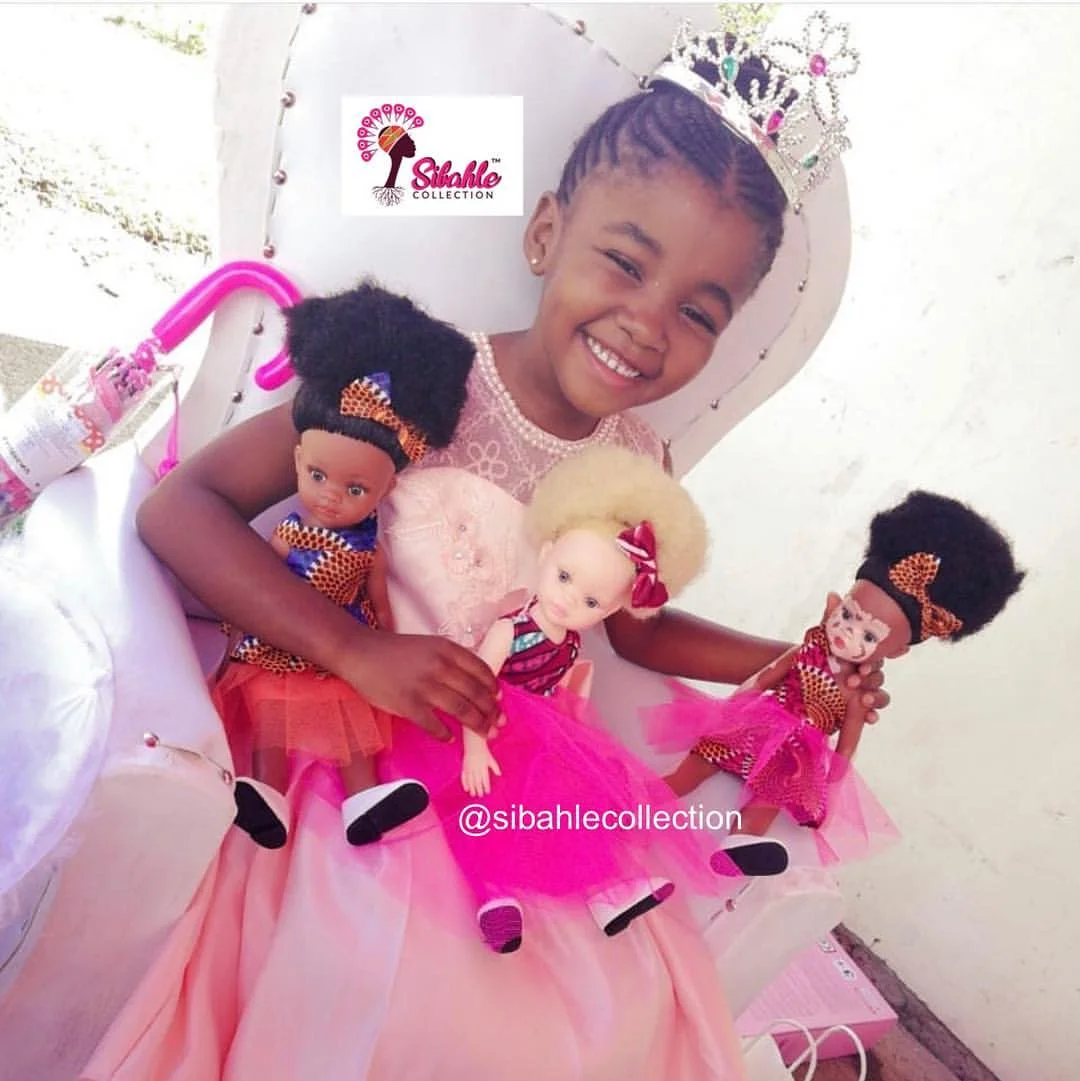The Sibahle Collection: Affirming Identity through Dolls by Francesca Tysse
Toys teach children about gender and perpetuate gender, social, appearance and beauty messages. The importance of having diverse representations is so that children develop gender schemas that are not harmful to themselves especially if they are women, people of color, or non-binary individuals. The Sibahle Collection offers representative dolls of young black girls to encourage children to embrace and celebrate their inner and outer beauty.
Caroline Hlahla and Khulile Vilakazi-Ofosu founded the Sibahle Collection in 2016. The collection’s name, Sibahle, is a Zulu word that means “We are beautiful.” The doll collection encourages young black children to take pride in their heritage and to be comfortable in their own skin.
The Sibahle Collection is shaping futures for children. Children have the opportunity, through play, to learn about the world and their place in it. Children can learn about different cultures, identities and individuals in the world by interacting with diverse toys, such as the Sibahle dolls.
The Sibahle Collection is growing and is slowly penetrating the doll market. The collection is stimulating children’s imagination for play now, and navigating the world towards a brighter future. The dolls are paving way for a world of self-love and self-acceptance.
The dolls are fighting against the pressure to live up to Eurocentric ideals of beauty and body proportions that are being projected in dominant media and Western popular culture. In order to combat the negative consequences of the unrealistic body ideals, the dolls represent realistic features of an African girl to celebrate beauty and difference. The Sibahle Collection reflects a realistic image of an African girl to assist black girls to love and cherish themselves.
The Sibahle Collection started with two dolls, Nobuhle and Bontle. The name, Nobhule, means the one that represents beauty in Zulu. The name, Bontle, means beauty in Sotho. The Sibahle dolls’ scent is vanilla unlike the traditional dolls plastic smell. The dolls are special because they have realistic features to resemble diverse African children.
Vilakazi-Ofosu, the co-founder of the Sibahle Collection, stated, "We decided to combine the knowledge we had developed in terms of afro textured hair, the needs of parents in terms of having diverse offerings as play dolls."
The hair of the Sibahle dolls recognizes that women are a heterogeneous group who have physical features that differ from one another. As a way to mirror young black girls, the collection introduced afro textured hair which can be combed, braided, washed, and conditioned. The hair is a tool to not only represent black girls, but also to teach them how to take care of their hair, while playing with their doll’s hair.
The collection’s purpose is to encourage young children to grow up being affirmed and comfortable in the skin that they are born with. Khulile Vilakazi-Ofosu expands on their purpose and newest addition by stating, “And that is why we added our doll with albinism, Zuri. We want [children] born with albinism to know that [they are] pretty. The fact that [they] have less pigmentation than the rest of the African race does not mean that there is something wrong with them. You know, to grow up just being comfortable with who they are.”
Another ground-breaking doll is Ndanaka. Her name means “I am beautiful” in Shona. She has a skin condition called Vitiligo. The doll demonstrates that she is beautiful and recognized for her uniqueness. The representation of vitiligo in a doll is crucial to dismantle the misconceptions and maltreatment of those with the skin condition. The Ndanaka doll is challenging society’s beauty norms by encouraging young black girls with Vitiligo to unapologetically live their truth by embracing their beautiful skin with confidence.
The idea to create the doll collection stemmed from Vilakazi-Ofosu’s daughter wanting flowy hair. Vilakazi-Ofosu analyzed her daughter’s toy collection and noticed that none of her toys were representative of who she was. The toys that her daughter was interacting with, shaped her view of her own hair, to be foreign to her, which she then deemed as undesirable and unattractive. Vilakazi-Ofosu concluded that it was only natural for her to ask for flowy hair, since that was the type of hair she was interacting with on a daily basis. The Sibahle Collection of dolls was born from that mother-daughter interaction to encourage children to recognize how truly beautiful and awesome they are.
Furthermore, the clothing for the dolls reflects African fashion, using bright colors and traditional patterns, and is made in South Africa but shipped internationally, with several choices which fit various dolls.
The varied doll options reflect the diversity of children that are not being celebrated in the media, toy aisle and classroom, which is an important step to foster a child’s sense of self, while helping one embrace his or her own identity overall. Black dolls matter so much, as it is critical to feel represented in society.
The toys that children play with shape their views, how they navigate the world, how they view themselves and others, and their aspirations for the future. The Sibahle Collection is a critical step towards inclusivity in the toy industry. It is important to engage with a doll who mirrors a child, because child has the opportunity to share and reflect on his or her own intersectional experience, which can enhance the love for his or her racial and ethnic identity. Engaging in play with a doll of another race fosters understanding, empathy and respect for other groups of people. In the end, the Sibahle Collection encourages diverse friendship, self-love, self-care, equality, acceptance, love and natural beauty.
If you want to purchase one check it out here










